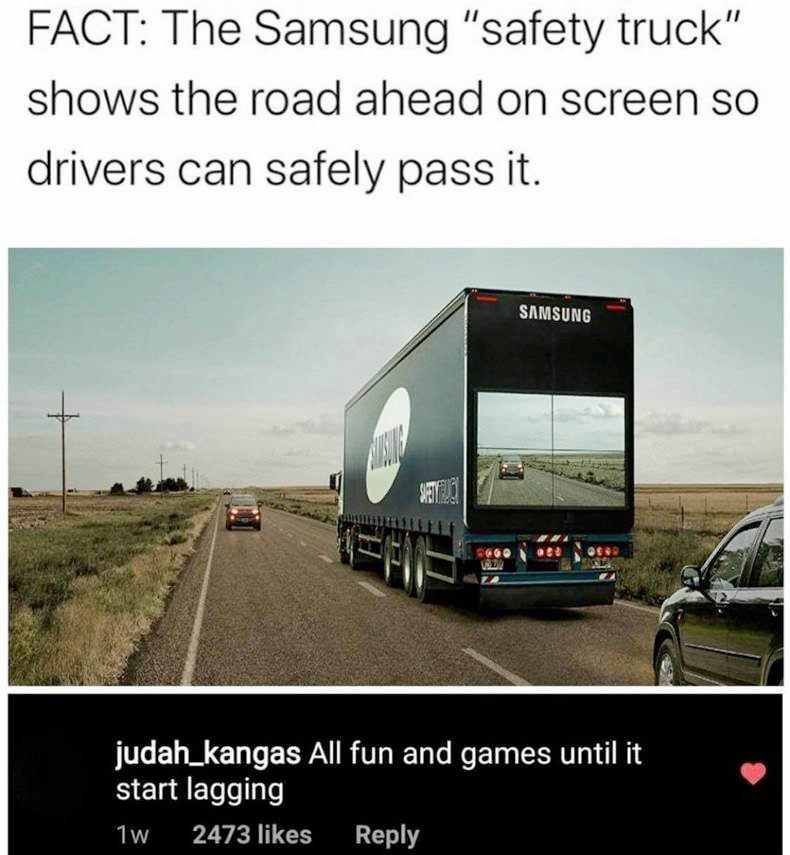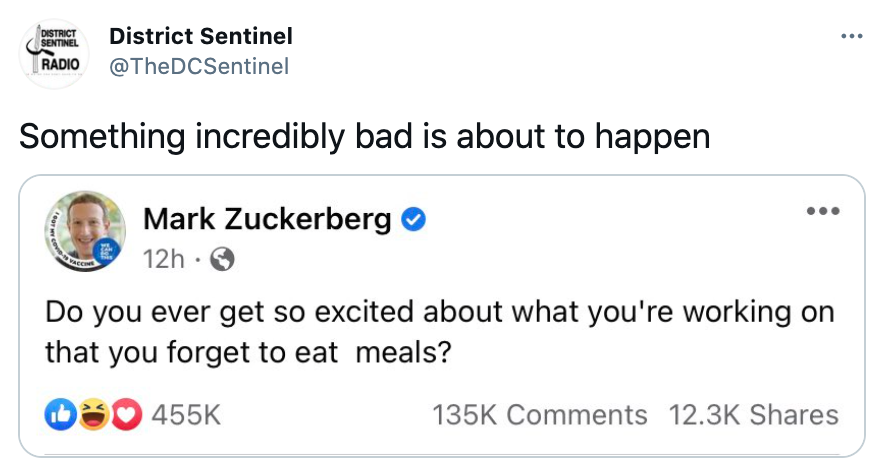1. Good Monday Morning
It’s May 17th. Eurovision is the largest live music event in Europe. It’s a week of festivities that culminates with Saturday night finals, where multiple countries compete for musical glory and bragging rights. This year’s event starts Tuesday and builds all week until the final round on Saturday in Rotterdam. Last year’s contest was canceled due to the pandemic. Check out their YouTube playlist because there won’t be US broadcast or cable coverage this weekend.
Today’s Spotlight is 1,122 words — about a 4 minute read.
2. News To Know Now
Quoted: ““If we receive €200 worth of Bitcoin within 24 hours, your information will be permanently deleted from our servers … [or] your information will be published for all to see.” — ransomware email sent to a therapy patient in Finland late last year as related in Wired’s “They Told Their Therapists Everything, Hackers Leaked It All.”
a) The Wall Street Journal reports that attorneys general from 44 states have written Facebook CEO Mark Zuckerberg to halt plans for a version of Instagram created exclusively for children. Zuck previously discussed those plans while testifying before a House committee earlier this year, prompting Democratic lawmakers to also call for a halt.
b) It’s no secret that Gen Z is obsessed with Snapchat and TikTok. A new study from eMarketer shows these users are going to be spending more time on an app than they ever have before. This year, there will be over four million more active GenZers using TikTok as opposed to Instagram- and by 2023, TikTok might pass Snapchat.
c) Amazon, Apple, and Google are joining forces to support a new connected home initiative called Matter that will create standards for third parties to certify their devices for use with Alexa, Siri or Google Home Assistant. The standard is brand-new although the concept was first tried in 2019 under the name CHIP. CNET has details.
3. Search Engine News
Prominent MSNBC news anchor Rachel Maddow posted on Twitter that Google search does not label ads. Google search liaison Danny Sullivan quickly responded that ads are “always labeled” and then released an informative video (below) in response to her confusion.
It is important for business leaders to understand that even smart users, like the Oxford-educated Maddow, can easily misunderstand the nuances involved in search and make very broad assumptions.
4. In The Spotlight — Facial Emotion Recognition
While society grapples with facial recognition use by law enforcement, private companies are applying this technology for novel and convenient uses.
Disney World is currently testing face-scanning at park events even when people wear face masks. Universal Studios in Beijing announced in 2019 that they will also have a touchless entry system where guests scan their faces instead of swiping an ID card. Multiple entertainment venues in Abu Dhabi are also using the technology to provide hands free access into facilities.
Not everyone is happy with this concept. Portland was the first U.S. city to ban private companies from using facial recognition, but the Electronic Freedom Foundation actually opposes a complete ban on private companies using the technology. “It does not follow [police department use] that all private use of face recognition technology undermines human rights,” the organization wrote several months ago.
And much like imaging systems can often be fooled by the slightest changes in an image file, people have developed many ways to fool facial recognition, including makeup. Protests in Hong Kong and the U.S. last year accelerated the desire to counter facial recognition used to surveil citizens. One method builds on an old World War Two naval camouflage technique. Vogue has more information about how people are using that concept seventy years later to stymie efforts to track people.
Facial recognition isn’t only about the size of your nose or the shape of your mouth. New facial emotion recognition scans individuals in stores, during entertainment testing, and even during job interviews. Imagine that all of your micro-expressions are tracked throughout an interaction on a friendliness scale or used to gauge your true feelings about a topic.
The Financial Times has created a special, free interactive feature that uses your face and your expressions to create facial emotion recognition. Make sure that you’re using a device with a camera, and click below to experience this new technology firsthand.
5. Debunked — Bags of Gasoline
No one ever went broke overestimating how ridiculous some people can be when faced with inconvenience, but at least one widely publicized image of bags used to store gasoline was from 2019 in Mexico, according to Reuters. No, they don’t know why either.
6. Following Up — Amazon Wins $300 Million Appeal
We’ve told you about how different countries have targeted tech company earnings as a potential tax revenue source. Australia, Germany, and France have all tried to bill American tech companies, but at least one precedent was set this week when an EU court overturned a $250 million euro tax penalty against Amazon in Luxembourg.
7. Protip — Stop Website Notifications
We don’t want to send you notifications when you’re busy doing other things, but it seems like every third website you visit asks for that permission. There is a simple way to block even those permission requests from displaying if you’re using a Chrome web browser.
Screening Room – FedEx Delivering for Earth
9. Science Fiction World — Brain Implant Allows Paralyzed Person to Write
We’ve written about neural implants before. They’re not ready, but wow, are they closer than ever. You have to read this article about testing going on now that allowed a person to create handwriting on a screen while imagining that he was writing the letters. There are lots of caveats. It’s not even a prototype yet, but you need to read this uplifting Ars Technica piece.
10. Coffee Break — Which Way Did He Go?
It’s called “a clever combination of reflection, perspective, and viewing.” No wonder none of us could agree what color that dress was. This arrow on a swivel is turned 180 degrees, yet always points to the right. Except if you use a mirror and then it points to the left. I dunno either, but it’s cool.
11. Sign of the Times





